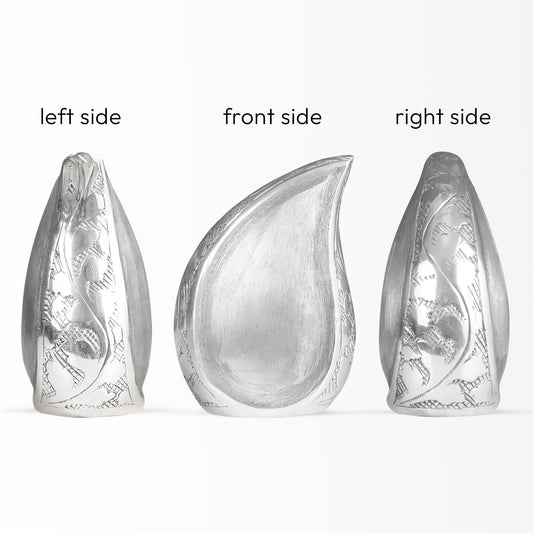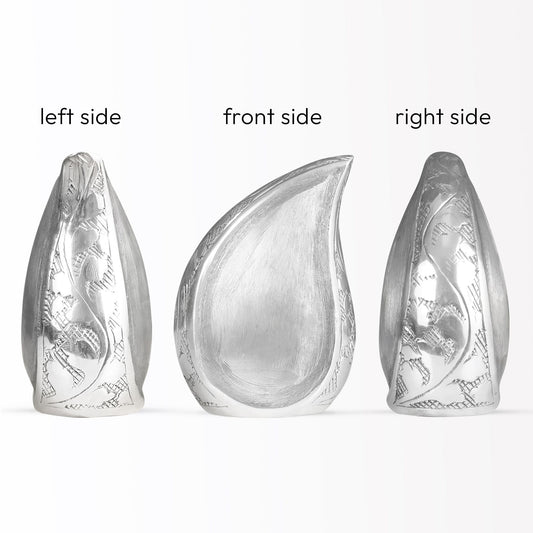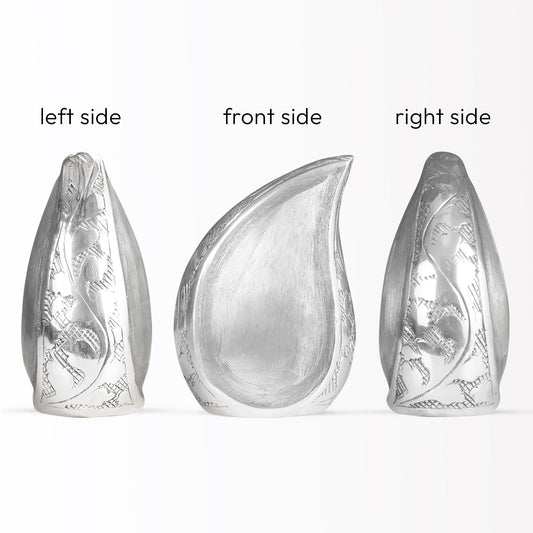Popular Urns
Virginia State Cremation Laws: A Detailed Handbook

Cremation has become more so an option preference for Virginians when paying respect to a dear one. Like any other state law, it is crucial to know how the laws of cremation work to maintain apt compliance and implementation of the last will and testament of the deceased. With that in mind, here's an overview of some of the major points of Virginia laws on cremation.
Legal Permit: Who Decides?
Proper authorization is the initial step for the procedure of cremation in Virginia. By a written consent for cremation, the legal next of kin are to be notified. The group includes spouses, adult children, parents, and siblings. If the person made a will or created a statement of funeral wishes with clear intent on who to arrange for their funeral services, he or she can also make provisions regarding cremation.

"It's very important to have great communication among family members so there is no confusion," says an area funeral director.
Necessary Paperwork: The Starting Point
Without these mandatory documents to be issued, no cremation is possible. First of all, the most important form that needs to be filed is a death certificate signed and affirmed by a licensed physician. It is to be submitted to a local registrar. Another such form to be filed is a cremation authorization describing consent to cremation with some details about the deceased person.
Waiting Period: Time for Reflection
In Virginia, pursuant to statute, there must be a 24-hour period after death elapses before cremation can take place. In a way, it could be the hour that a family is finally able to internalize the news and begin to do all they need to do. "This time can be crucial for families coming together to reflect on their loved ones," says a grief counselor.

Choosing a Licensed Service Provider
In the state of Virginia, a licensed crematory or funeral home must be chosen. Cremation providers are registered by the Virginia Board of Funeral Directors and Embalmers.
This will be the only way to ensure the facility is operating within the law and is practicing with ethics. The family must see to it that the crematory uses proper credentials so they can prepare a dignified and respectful final stage.
Ashes Disposition
Once the cremation process is finished, families are returned the ashes, or cremains, of their loved one. The state of Virginia permits persons holding the ashes to retain them, inter them, or scatter them. Scattering in public places may be regulated by local authority, but it can still take place.

In fact, some families will place ashes within memorials or keepsakes, and the remembrance takes on much personality.
Conclusion: Empowering Families through Education
Knowing Virginia's cremation laws empowers the family to make proper plans in this regard with utmost confidence, clarity, and love. Such legal requirements and options available can empower them to be able to make sure that, in the best interest of the deceased, his or her wishes would be fulfilled as well as a fitting tribute was given to him or her.
Thus, through memorial services or private refection, knowing families would guarantee that those closest to them are accorded a dignified send-off.
ALSO READ:
Cremation Related Legal Questions In The Case Of Mexico State



























































































